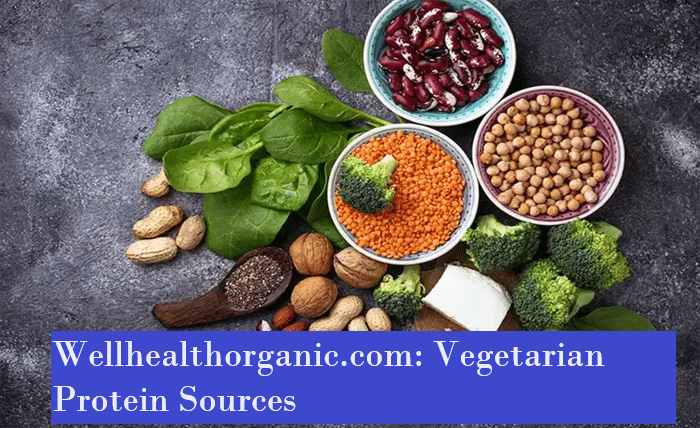In the pursuit of a healthy and balanced vegetarian diet, prioritizing high-protein foods is essential for muscle growth, immune function, and overall vitality. At WellHealthOrganic, we advocate for plant-based nutrition that not only meets but exceeds your dietary protein requirements. This comprehensive guide explores a variety of nutrient-dense, protein-rich foods that can elevate your health and well-being.
Importance of Protein in a Vegetarian Diet
Protein is a fundamental nutrient required for various bodily functions, including muscle repair, hormone production, and enzyme synthesis. While traditionally sourced from animal products, plant-based proteins offer numerous health benefits and are crucial for maintaining optimal health.
Benefits of High-Protein Vegetarian Foods
- Muscle Maintenance and Growth: Adequate protein intake supports muscle strength, repair, and growth, essential for physical performance.
- Satiety and Weight Management: Protein-rich foods promote feelings of fullness and aid in weight management by reducing appetite and cravings.
- Nutrient Density: Vegetarian protein sources are often rich in vitamins, minerals, fiber, and antioxidants, supporting overall health and longevity.
- Sustainability: Plant-based proteins have a lower environmental impact compared to animal-based proteins, making them a sustainable choice for both personal health and the planet.
Top High-Protein Vegetarian Foods
1. Legumes
Legumes such as lentils, chickpeas, black beans, and kidney beans are excellent sources of protein, fiber, and essential nutrients. They can be incorporated into soups, stews, salads, and main dishes as a hearty plant-based protein source.
Nutritional Highlight: One cup of cooked lentils provides approximately 18 grams of protein.
2. Tofu and Tempeh
Tofu and tempeh, both derived from soybeans, are versatile and protein-dense options for vegetarian diets. Tofu absorbs flavors well and can be used in stir-fries, scrambles, and grilled dishes, while tempeh offers a nutty texture and is ideal for sandwiches, wraps, and curries.
Nutritional Highlight: A 3-ounce serving of tempeh contains around 16 grams of protein.
3. Quinoa
Quinoa is a complete protein, containing all nine essential amino acids, along with fiber, iron, magnesium, and antioxidants. It serves as an excellent base for salads, pilafs, and breakfast bowls, providing sustained energy and nutritional benefits.
Nutritional Highlight: One cup of cooked quinoa provides about 8 grams of protein.
4. Greek Yogurt
Greek yogurt is a protein-rich dairy option that can be included in vegetarian diets. It is higher in protein compared to regular yogurt and serves as a versatile ingredient in smoothies, parfaits, and dips.
Nutritional Highlight: A 6-ounce serving of Greek yogurt typically contains around 15-20 grams of protein.
5. Nuts and Seeds
Nuts and seeds such as almonds, walnuts, chia seeds, and hemp seeds are nutrient-dense sources of plant-based protein, healthy fats, and antioxidants. They can be enjoyed as snacks, added to salads, oatmeal, or used in baking for added texture and nutrition.
Nutritional Highlight: A quarter cup of almonds provides about 8 grams of protein.
Incorporating High-Protein Foods into Your Diet
- Meal Planning: Plan meals that incorporate a variety of plant-based proteins to ensure adequate intake throughout the day.
- Snacking: Choose protein-rich snacks like yogurt, nuts, or seeds to satisfy hunger between meals.
- Recipe Innovation: Experiment with new recipes that feature these high-protein vegetarian foods as the main ingredients, ensuring both flavor and nutrition are maximized.
Conclusion
By incorporating these high-protein vegetarian foods into your daily meals, you can enhance your overall health, support muscle function, and maintain a balanced diet. Visit WellHealthOrganic for more tips, recipes, and resources to optimize your vegetarian lifestyle and achieve your health goals through plant-based nutrition. Embrace the power of plant proteins and enjoy the benefits of a vibrant, protein-rich diet for sustained well-being.

